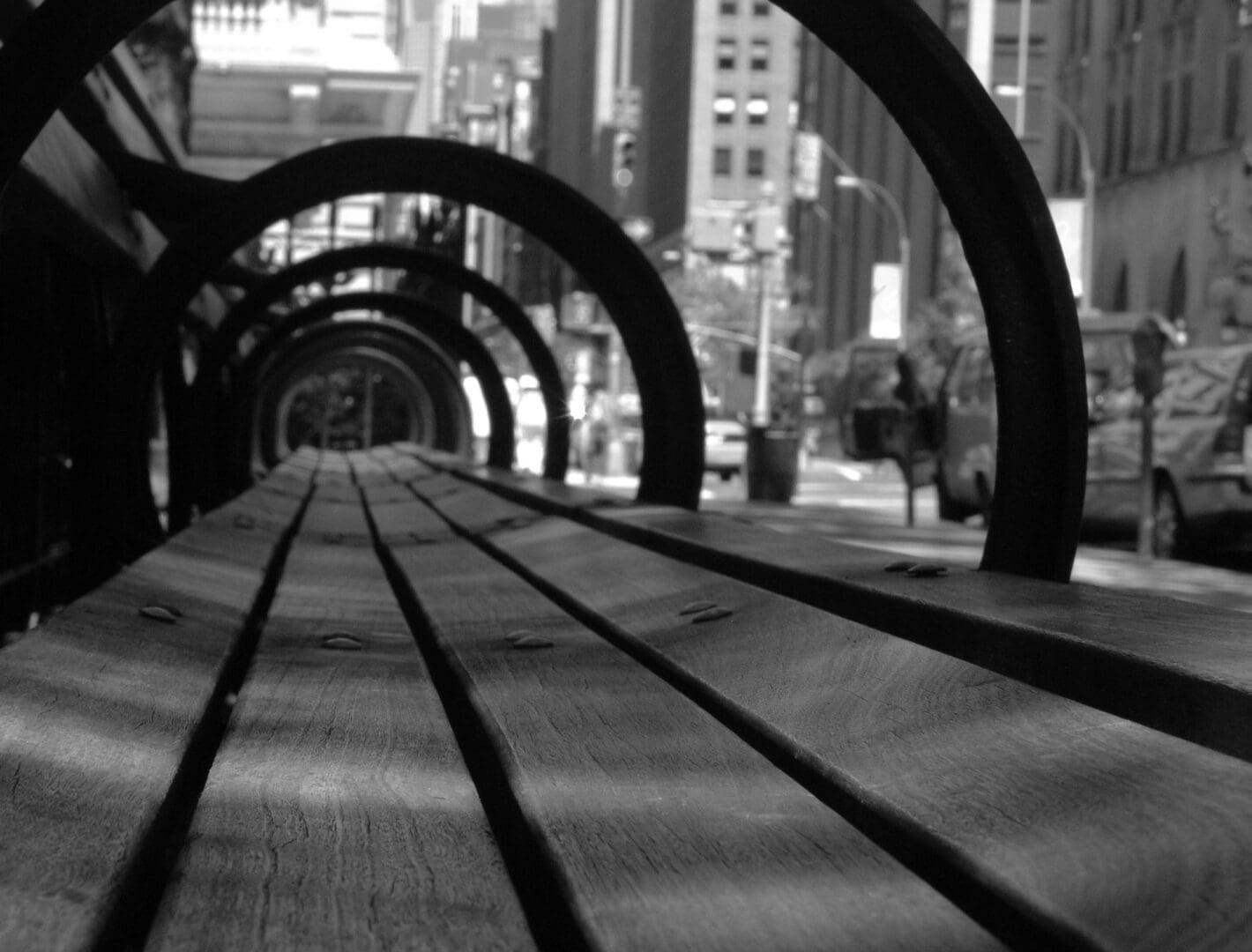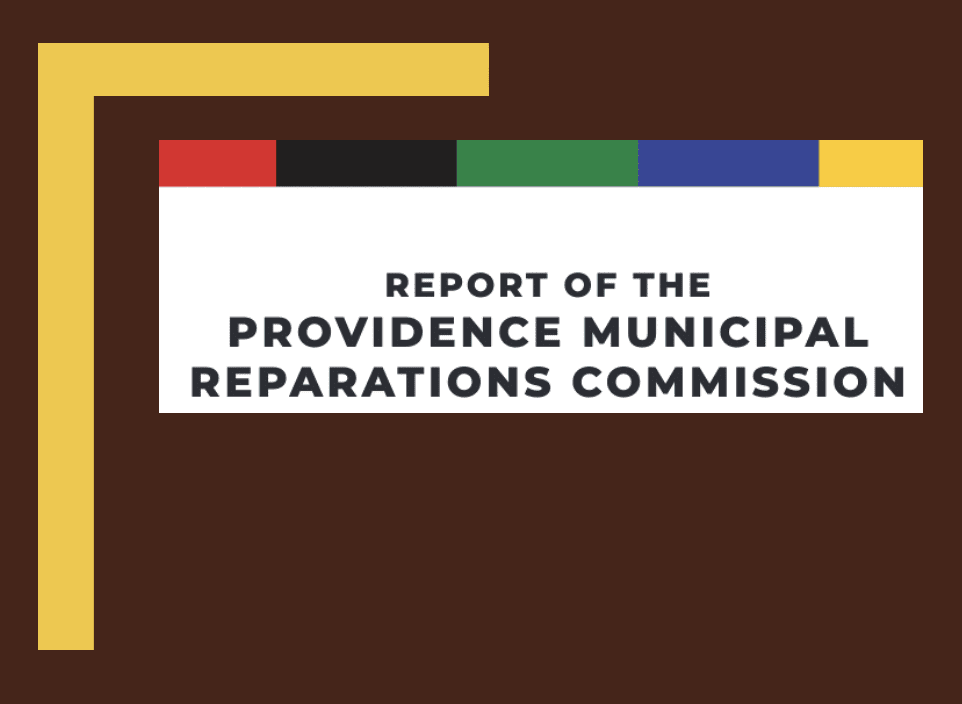Search Posts
Recent Posts
- RI Veterans: Did you know? 02.05.24 (Pvt. George J. Peters, local events, vet info) – John A. Cianci May 2, 2024
- Shared living opens new doors to people with disabilities – G. Wayne Miller, Ocean State Stories May 2, 2024
- We Cook! Point Judith Calamari, Chickpeas, Quinoa-Tabbouleh Salad, Red Pepper Hummus May 2, 2024
- The Independent Man, newly gilded, couldn’t miss Rhode Island Independence Day event May 2, 2024
- Rhode Island Weather for May 2, 2024 – John Donnelly May 2, 2024
Categories
Subscribe!
Thanks for subscribing! Please check your email for further instructions.

Providence Reparations recommends changes in law, new media, programs, funds, apologies…
Report follows four months of public meetings and community town halls to engage Providence residents in recommendations to advance reparations
Mayor Jorge Elorza and the Providence City Council today received a detailed report from the Providence Municipal Reparations Commission outlining the Commission’s findings, including a series of recommendations to advance reparations, defined by the Commission as “closing the present-day racial wealth and equity gap.” The report follows two years of engagement driven by Mayor Elorza’s community-driven Executive Order committing the City to a process of Truth, Reconciliation, and municipal Reparations for Black, Indigenous People, and other People of Color.
“Two years ago, we began meeting with Black leaders to advance a social justice agenda in Providence, centering voices of community members who deserve to be engaged in policy decision-making,” said Mayor Jorge Elorza. “I thank the Municipal Reparations Commission for their community-driven approach to making these recommendations, and outlining a path forward for the City and external institutions. While we know the City cannot advance this work alone, my team and I look forward to working with all stakeholders to put recommendations into action to close the racial wealth and equity gap.”
“I thank the 13 Municipal Reparations Commissioners, including those six members appointed by the City Council, for their diligent service over many months,” said Council President John Igliozzi (Ward 7). “$10 million in American Rescue Plan Act money was earmarked for this important cause. I look forward to reading the completed report and working with my council colleagues on the recommendations.”
The “A Matter of Truth” report, which informed the recommendations of the Municipal Reparations Commission, described how race-based discrimination such as municipal, state, and federal government-sanctioned redlining, discriminatory employment and housing practices, urban renewal, and interstate highway improvements deconstructed neighborhoods largely composed of people of African heritage and limited-income including Fox Point, Upper South Providence, West Elmwood, College Hill and Lippitt Hill during the 20th century. The Report begins in pre-1600 and concludes with the African heritage legacy continued beyond 2020.
To address the findings from the Truth, Reconciliation and municipal Reparations process, in its report, the Providence Municipal Reparations Commission recommended that the City of Providence and/or external partners implement an 11-Point Investment Plan that advances reparations, defined as “closing the present-day racial wealth and equity gap.” Those recommendations include:
1. Recognition of Harm
2. Equity Building for African Heritage and Indigenous Communities
3. Creation and Development of African Heritage and Indigenous Media, Technology and Communication Companies
4. Creation of African Heritage and Indigenous Development Programs
5. Review and Reformation of Laws and Policies that Harm African Heritage and Indigenous People and Communities
6. Movement Towards a More Equitable Healthcare System for African Heritage and Indigenous People
7. Creation of Neighborhood Incubator(s) Focused on African Heritage and Indigenous Communities
8. Accelerate the Evolution of the African American Ambassadors Group (AAAG) into an African Heritage Public Policy Institute Model
9. Creation of an “African Heritage and Indigenous Survivors and Descendants of Providence Urban Renewal Displacement” Fund
10. Expanded Representation of African Heritage and Indigenous People in Governing Bodies
11. Expansion of Cultural Engagement and Educational Opportunities for African Heritage and Indigenous Communities

“The Municipal Reparations Commission’s report aims to build an understanding of how the City of Providence’s treatment of nonwhite people evolved, which people and institutions benefited, who was left behind, and how these legacies still influence society today,” said Providence Reparations Commission Chairperson Rodney Davis. “Our recommendations are centered in the objective of moving people, institutions, and businesses in a similar direction towards universal equity. While we recognize that the City alone cannot advance reparations, we hope this report will guide the City in advancing policies and programs to begin repairing harm and that outside institutions will step forward to have maximum impact. On behalf of the Commission, we thank Mayor Elorza and Council President Igliozzi for bringing us together to engage the community and advance this work, and I especially want to commend all Commissioners for their deep commitment over the past few months to this process.”
Some details:
- Formal Municipal Apology For African Enslavement – and for Urban Renewal Policies & Practices
- Formal Municipal Indigenous Land Acknowledgement
- Reimagining building names, public streets, monuments, and public spaces
- Official City Holiday in Honor of the 1936 Indian Day Act
- Home & Financial Literacy
- Home Repair Fund
- Expand Guaranteed Income Fund
- Invest in and develop African heritage and Indigenous-owned media firms, (i.e. radio, podcast, television, digital platforms, broadband-access, etc)
- Bail Bond Fund to reduce unjust Pretrial Detention for African Heritage and Indigenous people.
- Decriminalize “public drinking”
- Waive municipal fees for Tribal events
- Discontinue the practice of suspending driver’s licenses for unpaid municipal fines and fees for African Heritage and Indigenous people
- Discontinue Providence police no-knock policies
- Development of a culturally responsive diversionary respite center as an alternative to arrest and/or emergency room transport for substance users.
- Reclaim the former Urban League site on Rosa Parks Way (Prairie Ave) as a future incubator and hub…include a new library
- The full report can be accessed online here – or below.
The 13-member Providence Municipal Reparations Commission began meeting in April 2022. Commission members appointed by Mayor Elorza include: Chairperson Rodney Davis, Vice-Chairperson Arnell Millhouse, Lanre Ajakaiye, Jessica Brown, Wanda Brown, Jim Vincent, and Raymond “Two Hawks” Watson. Commission members appointed by the Providence City Council include: Kyle Bennet, Michael Costa, Phyllis Evans, Dewayne Hackney, Dwayne Keys, and Cristian Potter. To learn more about the Commission, click here.
